І. Превод
стр.α
Както ако някой вземе фиала от щедра ръка
с плискаща отвътре лозова роса
и я дари
с наздравица на млад жених - от дом за дом -
всезлатен връх на цялата покъщина
украса на пира; и сред присъстващите близки оказва чест на родството и
прави го завиден чрез съгласно ложе (1-7),
стр.β
така и аз налят нектар, от Музите ми даден, изпращам
на наградоносните мъже - сладък плод на душата,
и тъй веселя
победилите в Олимпия и Пито. Щастлив е,
когото са обгърнали добри мълви.
Ту едного, ту другиго във времето обгрижва
цветущата Харита със сладкопесенния
форминкс и със всезвучните тръби на авлоса (8-14)
епод α
Сега и със двете дойдох с Диагор, възпявайки морската
Афродитината щерка и невяста на Хелиос - Родос;
та правобореца, грамадния мъж, при Алфей увенчан и Касталия,
да прославя в награда за боя с юмруци; и баща му, на Дике
обичния - Дамагет.
Тях двамата, с аргийско копие населяващи триградия остров,
близко до клина на широкоземната Азия
ІІ. Други преводи
As when from a wealthy hand one lifting a cup, made glad within with
the dew of the vine, maketh gift thereof to a youth his daughter's
spouse, a largess of the feast from home to home, an all-golden
choicest treasure, that the banquet may have grace, and that he may
glorify his kin; and therewith he maketh him envied in the eyes of the
friends around him for a wedlock wherein hearts are wedded-
So also I, my liquid nectar sending, the Muses' gift, the sweet fruit
of my soul, to men that are winners in the games at Pytho or Olympia
make holy offering. Happy is he whom good report encompasseth; now
on one man, now on another doth the Grace that quickeneth look
favourably, and tune for him the lyre and the pipe's stops of music
manifold.
Thus to the sound of the twain am I come with Diagoras sailing home,
to sing the sea-girt Rhodes, child of Aphrodite and bride of Helios,
that to a mighty and fair-fighting man, who by Alpheos' stream and by
Kastalia's hath won him crowns, I may for his boxing make award of
glory, and to his father Demegetos in whom Justice hath her delight,
dwellers in the isle of three cities with an Argive host, nigh to a
promontory of spacious Asia.
(E. Myers)
Как чашу, кипящую виноградной росою,
из щедрых рук приемлет отец
и, пригубив,
молодому зятю передает из дома в дом
чистое золото лучшего своего добра
во славу пира и во славу сватовства
на зависть друзьям;
Ревнующим с ложе согласия
Так и я
текучий мой нектар, дарение Муз,
сладостный плод сердца моего
шлю к возлиянию
мужам-победителям,
венчанным в Олимпии, венчанным у Пифона.
Благо тому, о ком добрая молва!
Ныне к одному, завтра к другому
Устремляет Харита в животворном своем цвету
взгляд свой и звук лиры и многогласных флейт;
Под пение лир и флейт
ныне выхожу я с Диагором
славить дочь Афродиты, Солнца невесту, морскую Роду,
чтоб, воздать хвалу за кулачный бой
без промаха бьющему
исполину в Алфейском и в Кастальском венке
и отцу его Дамагету, угодному Правде,
обитающим остров о трех городах
меж аргивских пик,
под бивнем широких хороводов Азии.
"Наука", М.,1980
ІІІ. Коментари
Rhodes is said to have been colonised at the time of the Dorian
migrations by Argive Dorians from Epidauros, who were Herakleidai of
of the family of Tlepolemos. They founded a confederacy of three
cities, Kameiros, Lindos, and Ialysos. Ialysos was then ruled by
the dynasty of the Eratidai. Their kingly power had now been extinct
two hundred years, but the family was still pre-eminent in the state.
Of this family was Diagoras, and probably the ode was sung at a
family festival; but it commemorates the glories of the island generally.
The Rhodians caused it to be engraved in letters of gold in the
temple of Athene at Lindos.
There is a noteworthy incident of the Peloponnesian war which should
be remembered in connection with this ode. In the year 406, fifty-eight
years after this victory of Diagoras, during the final and most
embittering agony of Athens, one Dorieus, a son of Diagoras, and himself
a famous athlete, was captured by the Athenians in a sea-fight.
It was then the custom either to release prisoners of war for a ransom
or else to put them to death. The Athenians asked no ransom of
Dorieus, but set him free on the spot.
(E. Myers)
Diagoras of Rhodes, most famous of Greek boxers, won the victory here celebrated Ol. 79, 1 (464 BC).
The poem was composed soon afterwards, as we may gather from sun Diagorai kateban, and was sung at Rhodes.
Diagoras was a Herakleid. In the third generation after Temenos a Doric colony went from Argos to Rhodes by way of Epidauros. The leaders were descendants of Tlepolemos, son of Herakles, and Pindar makes Tlepolemos himself the founder of the colony. The Herakleidai occupied three cities of Rhodes, and established a triple kingdom. Those who inhabited Ialysos were called Eratidai, and this was the stock of Diagoras, who also counted among his ancestors a son-in-law of the famous Messenian leader, Aristomenes. The royal power of the Eratidai ceased after Ol. 30, and in the time of Pindar prytaneis ruled instead; and it is supposed that the father of Diagoras, Damagētos, was such a prytanis. Of an illustrious family, Diagoras won for himself unparalleled distinction as a boxer. Besides being victorious at many local games, he was successful at all the national games, and so became a periodonikês. His sons emulated the head of the house. His youngest, Dorieus, had a career only less brilliant than that of his father. Damagētos won the pankration at Olympia, Akusilaos a boxing-match. The two sons of his daughters were also victors at Olympia, and one of his daughters enjoyed the exceptional privilege of being present at the Olympian games. The statue of Diagoras, surrounded by his three sons and two grandsons, the work of Kallikles of Megara, was erected at Olympia; and familiar is the story of the Spartan who, when he saw Diagoras borne on the shoulders of his two laurelled sons, exclaimed, “Die, Diagoras, for thou canst not mount to heaven” (Cic. Tusc. 1, 46, 111). It is not known whether Diagoras followed the advice or lived to see the downfall of his family. Rhodes belonged to the Delian league. Two years before the victory here celebrated the battles of Eurymedon were fought (466), and Athens was at the height of her power. Enemies of aristocratic government, the Athenians favored the commons as against the Doric aristocracy of Rhodes. Diagoras's son, Dorieus, fled to Thurioi, but returned and fought against the Athenians in his own ships, was captured, but liberated. Again exiled, he went to the Peloponnesos, where he was arrested by the Spartans and executed. But these events befell many years after the date of the victory celebrated in this ode.
The good fortune of Diagoras was proverbial. But if we had no evidence outside of this ode, we should know by Pindar's recital that his career was brilliant, as his home was brilliant - Rhodes, child of Aphrodite, bride of the sun. No wonder that the golden beaker and the foaming wine are used to symbolize the song in honor of such a victor and such a home. But there must be shade as well as light. Nemesis does not allow too much happiness, and in the history of the line of Diagoras, Pindar finds enough trouble for contrast, each trouble ending in higher joy. So, should the happiness of Diagoras ever be interrupted, there is good hope of more than recompense. Tlepolemos, founder of the house, slew the brother of Alkmena - passion had overmastered him - but Apollo sent him to Rhodes, where he received “sweet ransom for grievous disaster”. The sons of Helios, lord of Rhodes, were bidden to raise an altar to Athena and sacrifice to the Great Sire and the Warrior-maid. Wise as they were, they forgot fire, and offered flameless sacrifices. Yet the gods forgave; Zeus sent them gold, Athena cunning craft. Helios himself, pure god, was absent at the partition of the earth; yet he received a boon that he himself preferred to all besides. In each of these three cases we have a good beginning followed by misfortune, and yet a good ending crowns all. Diagoras was fortunate. Both areta and charmata were his, but he might one day forget; he trod a noble path, hubrios echthran hodon, but passion might overtake him; he was a prince among men as Helios was a prince among gods, but he might, in his absence, be forgotten; but should Nemesis have aught against Diagoras, he may yet hope to find, like Tlepolemos, like the sons of Helios, like Helios himself, lutron sumphoras oiktras gluku. The winds shift, but the divine helmsman steers the ship to its haven.
A remarkable feature of the myth is the reversal of the usual chronological order. We begin with Tlepolemos and end with the emergence of Rhodes. The climax is in the rank of those who have sinned, who have forgotten, who have been absent. Note that the fault is less the higher we mount. No wonder that an explanation has been sought of the triple shadow that falls across the poem. The Scholiast on v. 94 assumes that Diagoras had got into discredit by killing one of his opponents. But this must have been in some previous contest, for in such an event there would have been no victory, as is shown by the case of Kleomedes (Paus. 6, 9, 6). The shadow may come from the future, as has been assumed above, but there is danger of being a Promêtheus meta ta pragmata, and to Diagoras the words touto d' amachanon heurein, | ho ti nun en kai teleutai phertaton andri tuchein need not have been ominous. The changing breezes of the close may bring good as well as evil.
(B. L. Gildersleeve)
About the Latin Academy in the Vatican
13 years ago
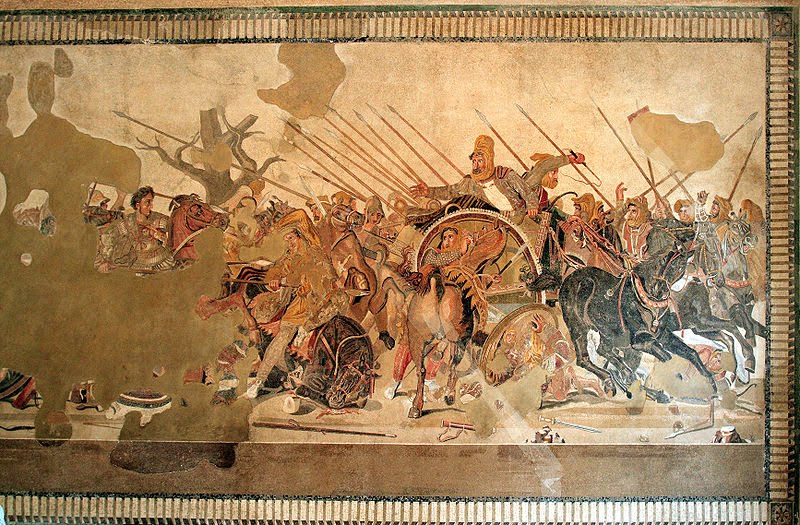
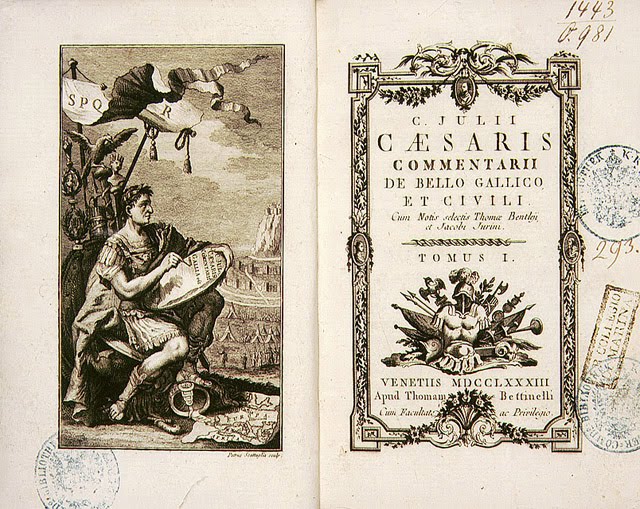
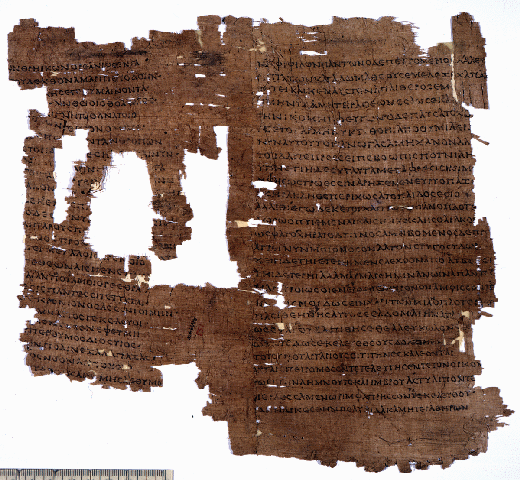
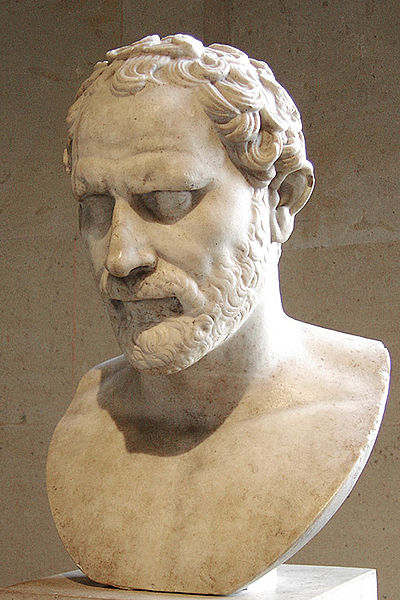


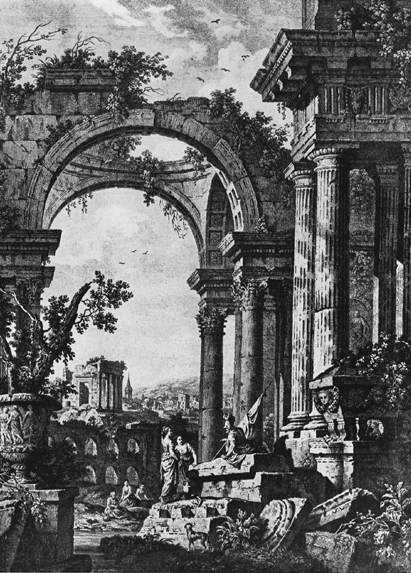




No comments:
Post a Comment